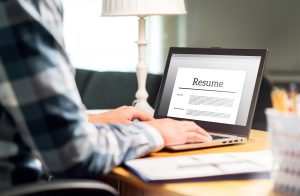The COVID-19 CARES Act was constructed to get aid to United States citizens as quickly as possible. In seeking to quickly spend trillions in relief aid, few restrictions were enforced on applicants. The floodgates were opened. And in doing so, fraud just became too easy. So easy that fraudsters didn’t even need to commit fraud themselves. They just brokered fraud.
A single mom’s problems with the Chicago Housing Authority started when someone on Facebook offered to help her get money from the federal Paycheck Protection Program. PPP loans were meant to help businesses hit hard by the coronavirus pandemic. Not a problem according to this broker if she didn’t own a business. The broker filled out the applications that got her forgivable loans for $21,0 0 in 2020 and in 2021. In return, she kicked back some of that money to the broker.
More than 8,800 people who have CHA vouchers or live in public housing in Chicago obtained more than 10,000 PPP loans totaling more than $190 million. Authorities suspect that much of that was tied to fraud. Which the inspector general is investigating into. One result is that this single mom got caught.
Consequently, the CHA revoked her rent-subsidy voucher, which paid for the apartment where she and her sons were living.
The broker has not been caught, therefore penalty free still. Not uncommon for brokers of COVID-19 fraud. In these CHA and state of Illinois COVID-19 aid cases, most of the PPP recipients won’t give investigators the names of the people who helped them obtain the money.
Shout out to the COVID-19 Fraud Enforcement Task Force. Their pile of investigations is endless it seems.
Today’s Fraud of The Day is based on article “PPP fraud was fueled in part by brokers taking kickbacks but escaping punishment” published by the Chicago Sun-Times on June 7, 2024.
Her problems with the Chicago Housing Authority started when someone on Facebook offered to help her get money from the federal Paycheck Protection Program, a 45-year-old North Side woman says.
Later, after the PPP loans she got had been flagged as suspicious, she told an investigator that her self-appointed broker filled out the applications that got the woman forgivable loans for $21,000 in 2020 and for the same amount in 2021.
In return for getting her money that was meant to help businesses hit hard by the coronavirus pandemic, the woman, who didn’t have her own business, said she kicked back some of that money to the broker.




